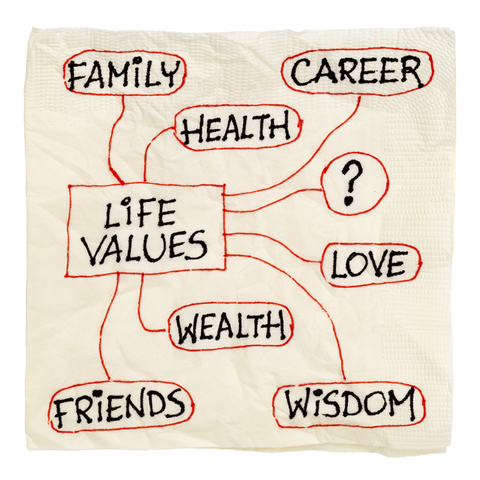How to Create a Life Plan - Stress Relief

Stress Factor too High?
Life Coaching:
Do you need to make changes in your life to aid stress relief and wellness, or perhaps get ahead in the business world, here is a straightforward and effective plan to help you take stock of your life and start on a new life plan.
A life plan will give your purpose, focus, direction and guidance. It helped me create balance and think through the important parts of my life.
Ask yourself what you want to achieve in each area of importance and why is it essential to you.
Play to your strengths as a happy life is one where you're doing the things you do best, most of the time, and live in tune with your deepest values.
You will need Motivation, Willingness to review your current lifestyle and a Desire for change. You also need to be in a positive frame of mind. This is crucial when making decisions about your life in order to achieve a good life plan.
What has made You who you Are?
Life Coaching Tips
- Write down any defining moments in your life and how they changed or affected you.
- What gives you pleasure, the list is unique to you and an intricate part of you. Big and small things, be it walking the dog, climbing a mountain or getting your degree. Write it all down so you consciously work toward it.
- Write down the things that gave you pain, again big or small, write down the source and where it came from. Don't spend time on the dark side, but you need to have it there as part of the defining moments of your life and then look for the alternatives.
- Lastly, reflect on what you learned from your parents. People never analyse if who they are, what they have or what they believe is what they really want. As an adult reflect on what you learned and decide if it is correct.

What Do You Want to do with Your Life
A good way to assess how satisfied you are in the major areas of your life use a scale of 1 to 10, with 1 being low and 10 being high.
1. Where are you today?
Rate the following on a scale of 1 - 10
Health – your physical well being.
Spiritual – your beliefs about the world and yourself.
Career – your livelihood or profession.
Financial – your monetary worth or well-being.
Emotional – your mental health.
Relationships – your thoughts, feelings, and interactions with other people.
2. Now rate on the scale of 1 - 10 where you want to be within a certain time frame.
You will now see where you need to focus.
This simple model enables you to balance your life. When one part takes off and the others are left behind, your focus will be on that left behind part, which needs to come up to speed with the others or it will hold you back.
Manage your Energy - Maximise your Life - Vanderbilt University
Identify the Values that Motivate You
Life Coaching Tips:
Pay attention to the words that occur to you first, the vision and feelings attached to those words. It will help you define what a value means to you practically. Values, which can link to you needs, will truly steer your motivation forward.
Draw a three-column table.
1. In the First column write the answers to the following questions.
- What people, place and things are most important to me now?
- If you list your job but important benefits to you of that job are also the money and the company car - list the three separately.
2. In the Second Column answer the following:
- What positive value or benefit does this person, place or thing give me?
- On the second list should be a great many values. Look at them and circle those that occur more than once, then link them to see if the mean the same thing to you e.g. honesty and integrity are essentially the same.
3. In the Third Column,
- write out the most frequently occurring values. Look at the remaining values and decide which are the most significant for you. Enter up to 10 emotions or values that have meaning to you, and make you feel alive. These will represent your true values.

Ten Life Plan Fundamentals
More Life Coaching Tips
Now that, you have a base, lets work on the fundamentals of your Life Plan.
1. Look at What is Not Working for You
Think about what you want to change in the main areas of your life, which for most people, as we have been discussing, will be career, family, wellness, finance, Intellectual, spiritual, travel, social, lifestyle environment.
Think about and assess how these areas are currently working for you.
2. Assess Your Core Values
Work around your values and what is important to you when making a life plan. Ask yourself what you want to keep and maintain in your life.
Do you value family, but find yourself spending too little time with them because you're working overtime at a job you hate?
Do you value fitness, but find yourself watching too much television?
Spend your time wisely on what you value the most in life and include only those activities that fulfill those values.
3. Visualise the Life you Want
Imagine in detail and focus on your desires. Make sure the picture in your mind is both realistic and exciting to you. Now reassess that list of activities again, and eliminate things that don't add to that vision and add the activities that do.
The key is to maintain the vision of the life you want and make decisions based on that.
4. Look at the Future
When making a life plan, think not only in months, but years. Assess what you want in the next few months, the next year, then 5 years up to 10 years, or more. Then work backwards to clarify what next steps will bring you a payoff, and help you decide where to put your time.
If you want to make a change in the job field, now maybe the time to make new connections, perhaps gain some work experience in your down time, the small steps help to build up for a bigger change in the future.
5. Plan Your Steps
Looking at where you are right now and, where you would like to be, can be broken down into manageable steps. Your successes can sustain your motivation, changes can be made when necessary, you can monitor your progress and consistently move yourself forward.
6. Trade-Offs
When saying 'yes' to new activities, think about what you are then saying 'no' to as a consequence. There are a finite number of hours in a day and each activity you choose to take on will eliminate a different choice.
7. Eliminate Road Blocks
As your plan moves forward, review your list of 'what's not working' and think about what is holding you back from where you want to be. Then make the cuts. Cut out unnecessary commitments, relationships and any other aspects of your life that is draining your energy.
Minimize what you cannot cut out and look at every 'drain' as a trade off. Do you want this in your life, or do want to be able to take steps toward the things that are crucial to you? When you see these tangible choices, changes are easier.
8. Set up Structures.
Create supports and systems in your life, so you don't have to supply your own momentum. I should start working out more often - make it happen - join a gym, find a buddy, and make it part of your schedule. Make the plans in your head part of your reality.
9. Ensure you Have Ongoing Support.
To keep on track, ask others for help, delegate tasks that are overloading you. Ask yourself which resources are needed to make your plans stick and, how will you get them?
Don't forget the idea of six degrees of separation. You are only ever five other people away from anyone else in the world because you know someone, who knows someone else and so on, until you reach the person you had in mind or who can help you. Start networking.
10. Stress Management Strategies
When the stress level is too high, we don't think clearly and feel overwhelmed. If you constantly operate in high stress mode, you react to demands without thinking it through, instead of proactively seeking a simplified solution.
Include stress management techniques in your habits too.
NLP - How to find out what's important to you.
An in Depth Look at What is Important to You
- Career - What do you want to achieve? Do you enjoy your work and get satisfaction from it? Are there opportunities to grow?
- Financial - How much do you want to earn, by what stage? How is this related to your career goals?
- Learning & Growing - What further education do need in order to achieve your goals? Do you have a sense of purpose and meaning in your life?
- People & Relationships - Do you want to spend more time with your family? How will you allow for this? Do you have access to beneficial communities or networks?
- Artistic - Do you want to achieve musically, artistically if so, how are you going to do this.
- Persona - Is any part of your mindset holding you back? Is there an aspect of your personality or behaviour that will hold you back? If so, set a goal to find a solution to the problem.
- Physical - Are there any sporting goals that you want to achieve, or do you want consistent good health? What steps are you going to take to achieve this?
- Social - How do you want to enjoy yourself? Do you have close, supportive friendships?
- Travel - Do you want to travel? Where do you want to go and how will you achieve this goal?
- Charity - Do you want to help those less fortunate? Leave the world a better place for having you in it?
- Lifestyle - Where do you want to live, and how are you going to plan for your home.
Last Word
- You are infinitely resourceful and capable of achieving more than is usual for you.
- No one but you is so well equipped to create the life you want.
- Give yourself permission to take control of your life and live the whole, full life that you want.
Trust yourself, and miracles will happen. To this end I leave you with the words of, American philosopher and naturalist, Henry David Thoreau,
What lies before us and what lies behind us
are small matters compared to what lies within us.
And,
when we bring what is within, out into
the world, miracles happen.
More Ways to Help with Stress Relief
- Manage Stress - Give Yourself More Time
Suffering from Stress and need more time to take the pressure off? Read on, for tips and advice on how to get more time. - Melt Away Stress and Find More Energy
Stressed? Relax and find more energy with soothing remedies and wonderful stretches. - Causes and Symptoms of Stress Burnout
Is it Stress or Burnout? Recognised the signs, the causes and symptoms before you reach the tipping point and go over the edge.








